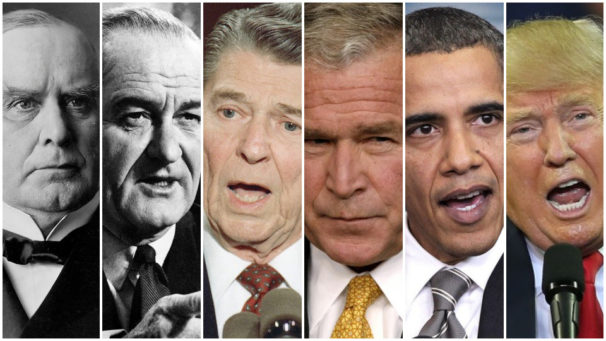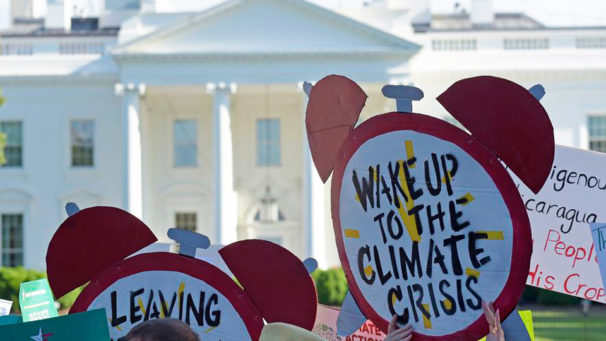
People’s World readers offer their take on a number of recent articles featured in our pages. The comments below have been proofread and edited for length. Join the discussion on the PW website and on Facebook, or submit your comments directly to editors@peoplesworld.org.
Re: Scholars mark milestones along past utopian roads to the future
Henry Millstein says:
Fascinating article, Eric. Particularly interesting for the interplay between “real, existing socialism” and “utopian” ideas. I think it’s time for progressives to re-examine some of these “utopian” ideas to see if they offer any insight or inspiration for today’s struggles. I think people all across the political spectrum are looking for some new vision of the future beyond the dead-end that capitalism and capitalist culture are moving toward.
Re: Karl Marx at 200
Rick Nagin says:
This article is extremely superficial and shows little recognition of the profound impact Marx has had and continues to exert on human consciousness and history. It does not mention the great discoveries he made in the area of social science—the materialist conception of history, the revolutionary character and mission of the working class, the need to destroy the capitalist state and replace it with a revolutionary working class power that can defend itself from counterrevolution and lead society forward to the abolition of classes and the oppressive superstructural values and culture bequeathed by capitalist society.
The article does not mention that Marxism was the inspiration and guiding ideology of the historic revolutions and national liberation movements of the 20th century. Atkins dismisses and seriously denigrates the continuing influence of Marxism when he writes: “a few (Communist) parties remain in power,” but “most are scattered, disorganized” or marginal. Yes, there have been tragic setbacks due to the corrosive influence of right opportunism that Marx continually denounced. But Marxism, together with its further development, Leninism, is the ideology of parties in power in countries with one-fifth of the world’s population, including Cuba, which exerts enormous influence throughout Latin America; and China, which, according to the CIA and the World Bank, now has the world’s largest and most dynamic economy.
Marxists continue to play important roles in progressive and revolutionary movements throughout the capitalist world. This is something to celebrate since they inspire and organize masses and give hope that class exploitation and oppression will be overcome. Contrary to Atkins’ pathetic comment that “it could be argued that capitalism hasn’t really given most people much to get excited about lately,” the fact is, capitalism is in deep crisis, has no solution to the pressing problems of working people and threatens human extinction through environmental disaster or world war.
Capitalism has no lasting future and, as noted in the Manifesto, the growing worldwide class struggle will end “either in a revolutionary reconstitution of society at large, or in the common ruin of the contending classes.” Defeatism and passivity are not justified and should never be promoted. We must not descend into cocktail chatter. Our tone must be urgent, confident and revolutionary, i.e. Marxist.
Re: Making time for Marx, not just the market
Cameron M. Orr says:
I enjoyed reading this article, and many good points made! I think it’s really important to know the Constitution of the People’s Republic of China states that while “[t]he exploiting classes as such have been eliminated in [China],” it nonetheless affirms that “class struggle will continue to exist within certain limits for a long time to come.”
I think this means that while there are individual capitalists in China, they are not a unified ruling class, and that the working class in China ultimately labors for its own collective interests. However, the contradiction between individual owners of private capital and wage laborers continues to exist. The Chinese state does not deny the importance of class struggle, but class antagonisms do not define the fundamental contradictions of the Chinese economy, either.
How is this possible? The Chinese state was formed by a proletarian revolution under conditions of semi-colonialism and extreme economic backwardness. Economic development, therefore, and not mere redistribution of wealth and power, has remained the chief task necessary for improving the lives of the working class and peasants in China, following revolution. The same is true in all developing countries, a fact often not understood by many Western socialists. Even Mao saw that the national bourgeoisie (though not the “comprador bourgeoisie”—those in cahoots with imperialists, or the landlords) could play a progressive role in the revolution and development of the Chinese economy. But they perform their role under the thumb of a proletarian state, led by a Communist Party.
Following revolution, China’s position as a socialist, but developing country is what has led it to become a core leader of South-South cooperation, which has become so important to the struggle against imperialism.
Although China has experienced tremendous growth and development, it is still a developing country. The CPC has identified the chief contradiction in China as the contradiction “between unbalanced and inadequate development and the people’s ever-growing need for a better life.”
So, while class struggle continues to have an important place in Chinese society, it is important to understand, from a historical and scientific perspective, why achieving development is more fundamental to improving the lives of the working class in China than struggling against capitalists. Capitalists exist in China, but they do not control the Chinese state or the Chinese economy as a whole.
Having said this, it is also important to note that the ruling class in Western capitalist countries seek to put Chinese and U.S. workers against the Chinese socialist state by various means. These include efforts to make it appear as though Chinese workers would be better off laboring under, and protesting against, a liberal-bourgeois state. However, this is an illusion, designed to incite, amongst Chinese and U.S. workers alike, antipathy against the proletarian state.
Re: Trump: Another president trampling on international and U.S. law
Susan Vago Webb says:
Your lumping Obama in with Trump et al. is shocking to me. Certainly we can disagree with his Libya attack, but he also made some outstanding foreign policy moves, including opening relations with Cuba, trying to push against Netanyahu’s policies (which is why Netanyahu campaigned against Obama and supported Trump), resisting pressure to bomb Syria, and negotiating the Iran agreement, among others. There’s a dose of racism here too, in dismissing Obama as just another imperialist. What is the message of this article if not “a plague on both your houses” and “why bother to vote”? Sorry to see this. It’s a real disservice.
Re: Trump: Another president trampling on international and U.S. law
Norman Markowitz says:
Fine article, Mr. Wojcik, and you only skimmed the surface. This is what the “I”-word, imperialism, leads to: militarization of the countries which engage in it, re-enforced by military strikes and interventions which in turn lead to increased militarization, each feeding on the other. The results are always death and destruction abroad and the undermining of the civil rights and civil liberties of the people in the home countries of imperialism. That is why this article is important in advancing the peace movement here.
Re: Earth Week 2018: Environmental losses and solutions
Zen Arts says:
Not that simple. If it were as simple as telling voters to vote for pro-environment candidates for public office, we would not have Donald Trump as president or the anti-environment extremists who now control both houses of Congress. Right-wing politicians are able do much regressive public policy on the environment because many voters do not believe there is an environmental crisis or believe in the science of global warming. Or they do not believe in the seriousness and extent of the problem. It is the result of years of right-wing propaganda and agitation against science and facts-based public policy.
The extreme right has been very clever in keeping the public ill-informed on environmental issues by hiding, ignoring, and distorting the data on climate change and global warming. They present the public with a false dichotomy of choosing between jobs and protecting the environment. They attempt to silence government scientists who know the truth and find it difficult to publish. Include also the Trump administration attempts to deregulate and rescind standards of pollution and toxic admission controls. Withdrawal from the Paris Climate Accords could have irreversible and catastrophic consequences for humankind. But that is of no concern to those who put profits before people and nature. Transitioning to a green economy and renewable energies is not part of their plans as they encourage fracking and similar technologies to extract more and more fossil fuels from the ground.
Therefore, the first priority is to win the ideological and cultural war over the facts and science of climate change. Until that is done, there will continue to be losses on the environmental front. We need to extend the class struggle beyond the economics and into the realm of ideas.
The poor and working classes especially must be convinced that climate change is an immediate threat to their lives and standard of living. The rich and ruling class can hide behind protected and gated communities to escape the ravages of climate change and pollution which they are largely responsible for. The New Orleans poor and minorities could not even leave town as Hurricane Katrina destroyed their communities, and the Puerto Ricans are still waiting for aid from the effects of Hurricane Maria. It shows how vulnerable and expendable these communities are.
Which is the greater threat to humanity, nuclear war or an ecological apocalypse? Does it matter? Both are the results of unfettered and unregulated capitalism. The real choice is clear. The choice is between a socialism that is democratic, peaceful, and green, or barbarism.












Comments